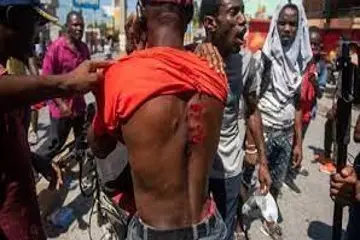Haiti’s unraveling security situation has entered a stage where regional stability is now openly threatened, prompting Washington and Panama City to press for a far more aggressive international mission.
From Fragile Mission to Urgent Surge
What began months ago as a modest, Kenya-fronted stabilization effort has withered under inadequate funding and manpower. Fewer than a thousand foreign personnel remain deployed—far below the original design. Meanwhile, Haiti’s gangs have surged ahead, carving Port-au-Prince into armed zones of control and extending their influence into rural corridors that were once relatively untouched.
The situation has made clear a painful truth: the existing mission is not a deterrent. Instead, it has exposed the imbalance between the scale of Haiti’s gang networks and the limited force tasked with confronting them.
The Turning Point
The assassination of President Jovenel Moïse in 2021 created the power vacuum gangs needed. They now command nearly the entire capital, operating as parallel authorities. Armed checkpoints, kidnappings for ransom, and systematic assaults—including sexual violence—have turned ordinary life into a cycle of fear.
The absence of national leadership has only accelerated their ascent. Haiti remains without a president, and its institutions, already fragile, risk hollowing out altogether.
Washington and Panama’s Calculus
Against this backdrop, the United States and Panama are lobbying the UN Security Council to green-light a dramatically larger force—one built not just for show of presence, but for offensive capability. The envisioned “Gang Suppression Force” would number over 5,500 uniformed members, reinforced by civilian staff, with explicit powers to track, detain, and dismantle gang structures.
Beyond street patrols, the mandate would include protection of essential infrastructure—airports, ports, hospitals, schools—and cooperation with Haitian security services to block the flow of weapons.
What’s at Stake
Failure to act decisively could turn Haiti into a permanent sanctuary for organized crime at the doorstep of the Americas. For the US, this means risks of mass migration and deeper regional instability. For neighboring states, it raises the prospect of violence spilling outward and entangling fragile economies.
Countdown to a Vote
The Kenya-led mission’s authorisation runs out in early October. Security Council members now face a decision: either scale up dramatically or watch Haiti slide further into lawless fragmentation. The draft resolution on the table is not just about Haiti’s future—it is a test of whether the international community can adapt to a crisis spiraling in plain sight.

